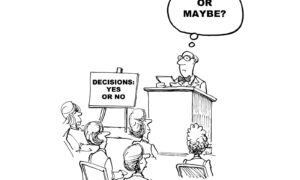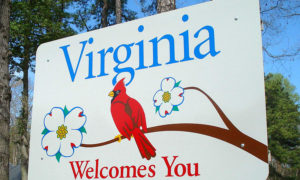New York Real Estate And Cannabis Pt. 2

Our friends at Harris Bricken take a look at the newly emerging market
By: Simon Malinowski
So you’re interested in applying for an adult-use cannabis license once the Cannabis Control Board (CCB) issues the license application. One of the first decisions an applicant needs to make is where they intend to operate. As we referenced in our earlier posts on the Marijuana Regulation and Taxation Act (MRTA) and Part 1 of this series, applicants will need to demonstrate that they either own or are under contract to possess (by lease or management agreement) the physical location in which the applicant will operate for the entirety of the applicant’s initial 2 year license.
After identifying the target license type (which should be the first step for any adult-use cannabis applicant), there are a lot of real estate related issues that an applicant needs to be mindful of, regardless of whether they are buying or leasing property. These are some considerations and practical steps applicants should start thinking about/taking now.
Location, Location, Location
After deciding on a license type, applicants really need to think about where they want to operate. Given the MRTA’s local opt-out provision, location choice is particularly relevant for retail dispensary and on-site consumption applicants. Similarly, production side applicants (cultivation and processing) should probably avoid focusing on real estate in New York City, where real estate costs are typically higher and significant industrial square footage is harder to come by.
Real estate costs are one of the highest operating expenses for a business. Incorporating local real estate costs into a business plan is critical to effectively preparing to apply for an adult use license. Once an applicant has identified the location, it is important to…
Start Talking to Brokers
There are lots of real estate brokers, each with a different specialization in a different geographic area. A good broker will have existing relationships with retail and industrial landlords and a strong knowledge of the local real estate market. Price per square foot, tenant improvement allowances, and delayed rent commencement are just some of issues brokers will be familiar with. Delayed rent and potential opt-out provisions are of critical importance given that applicants who choose to lease real estate will face the possibility of entering into a lease and not being issued a license.
Advocate to Local Government
Regardless of whether the target location is in a municipality that supports the MRTA, it is important to make local government comfortable with your plans. The MRTA actually requires applicants for retail and on-site consumption licenses to notify the local municipality (the applicant community board in New York City) of an intent to apply.
For all license types, garnering the support of local government will likely help the application process and actual operations easier. We expect that written support from the local community will benefit an application. General public support is equally important given that regulatory enforcement can make business difficult regardless of governmental approval.
Confirm Zoning
Across all license types, confirming that the identified real estate is zoned for an applicant’s intended use is an obvious requirement. For applicants that intend to purchase or lease developed property, the permissible uses for the property should be easily ascertainable. But for those applicants that choose to purchase or lease land and construct a building for operations, confirming the local zoning rules for the property, including height and lot-use limitations, is a necessary step before entering into any contract for real estate.
Identify Any Lending Issues
Federally insured banks cannot currently lend to cannabis businesses. In Part 1 of this series, we covered what a typical clause prohibiting cannabis operations looks like. This issue will quickly resolve itself for applicants that choose to purchase real estate: if the lender is federally insured, discussions will likely end as soon as the end use of the property is revealed.
For applicants who choose to lease, the issue is a little more complicated. Most landlords would not risk triggering a default under their loan agreements, but for those who do, the lender foreclosing on the leased property and removing the cannabis tenant can have costly implications, particularly if the tenant is forced to vacate the premises after it has commenced operations.
Applicants should review or have their attorney review all publicly filed loan documents for covenants that restrict leasing to cannabis businesses. It also makes sense to require the landlord to represent and warrant in the lease that it is authorized to lease to a cannabis business.
Design and Construction Plans
Once an applicant has purchased or leased real estate, actually building out the facility is pretty important. Designing and constructing any premises is a time consuming process. That is doubly true for industrial facilities (i.e. cultivators and processors) and in New York City, where the design approval process is itself lengthy and construction can be stopped for a myriad of reasons.
Talking to an architect as soon as possible is critical to staying on track. For cultivation and processor applicants, it also makes sense to talk to an energy consultant, particularly one who specializes in alternative energy, given the fact that the MRTA includes energy efficiency as an evaluation criteria for licensure.
Insurance
In New York, the Labor Law (which applies to construction) and premises liability laws (i.e. slip and fall cases) create significant potential liability in the real estate context. It is crucial for applicants to talk to a reputable insurance broker. Is good insurance expensive? Yes, but less expensive than legal costs and potential liability of a slip and fall case.
In summary, there are a lot of real estate issues any adult-use cannabis applicant needs to be cognizant of when planning for applying for a license. Some of these issues will develop as the CCB issues regulations, and we will be here to cover any and all changes.
Source: Canna Law Blog




































